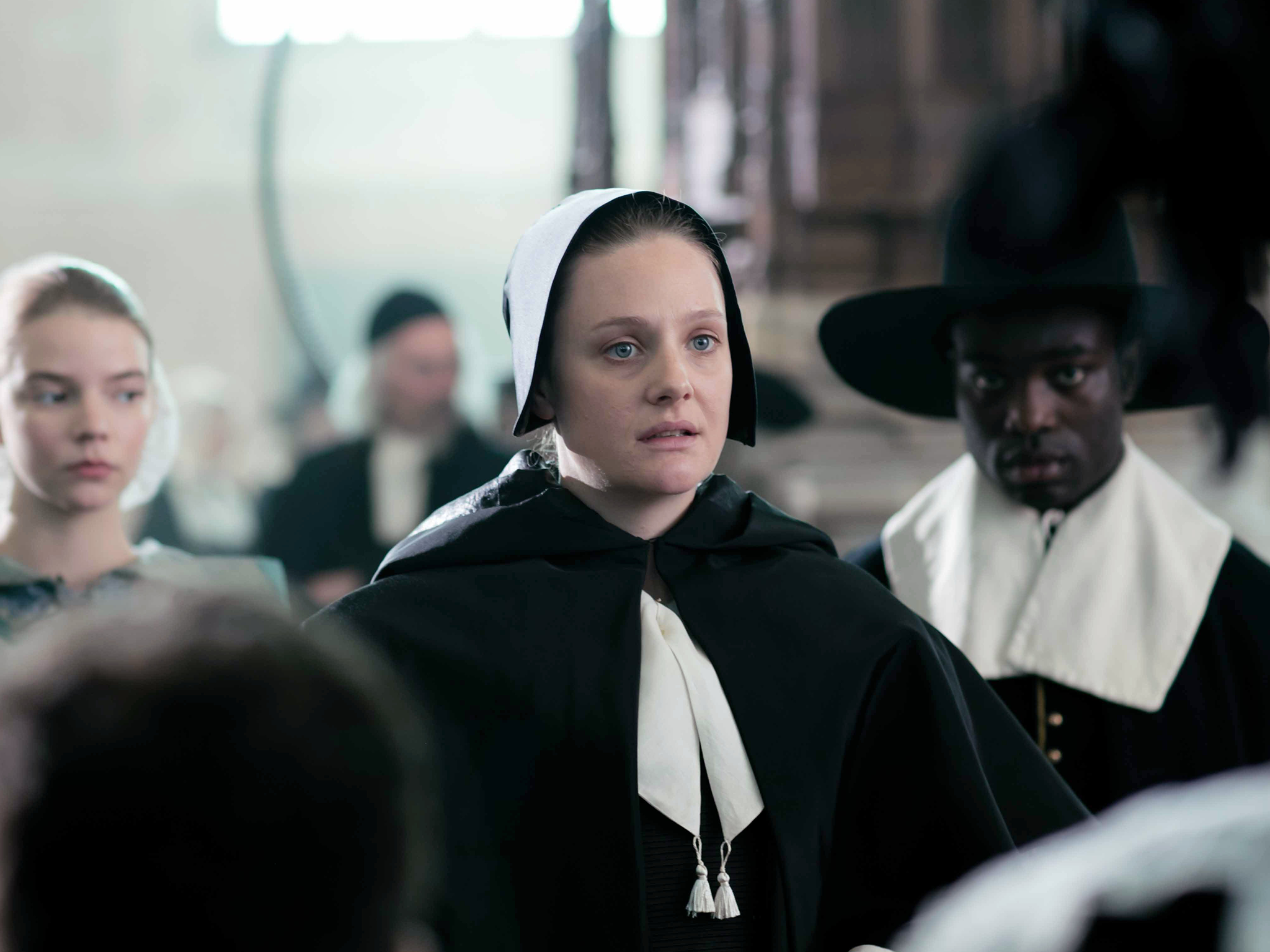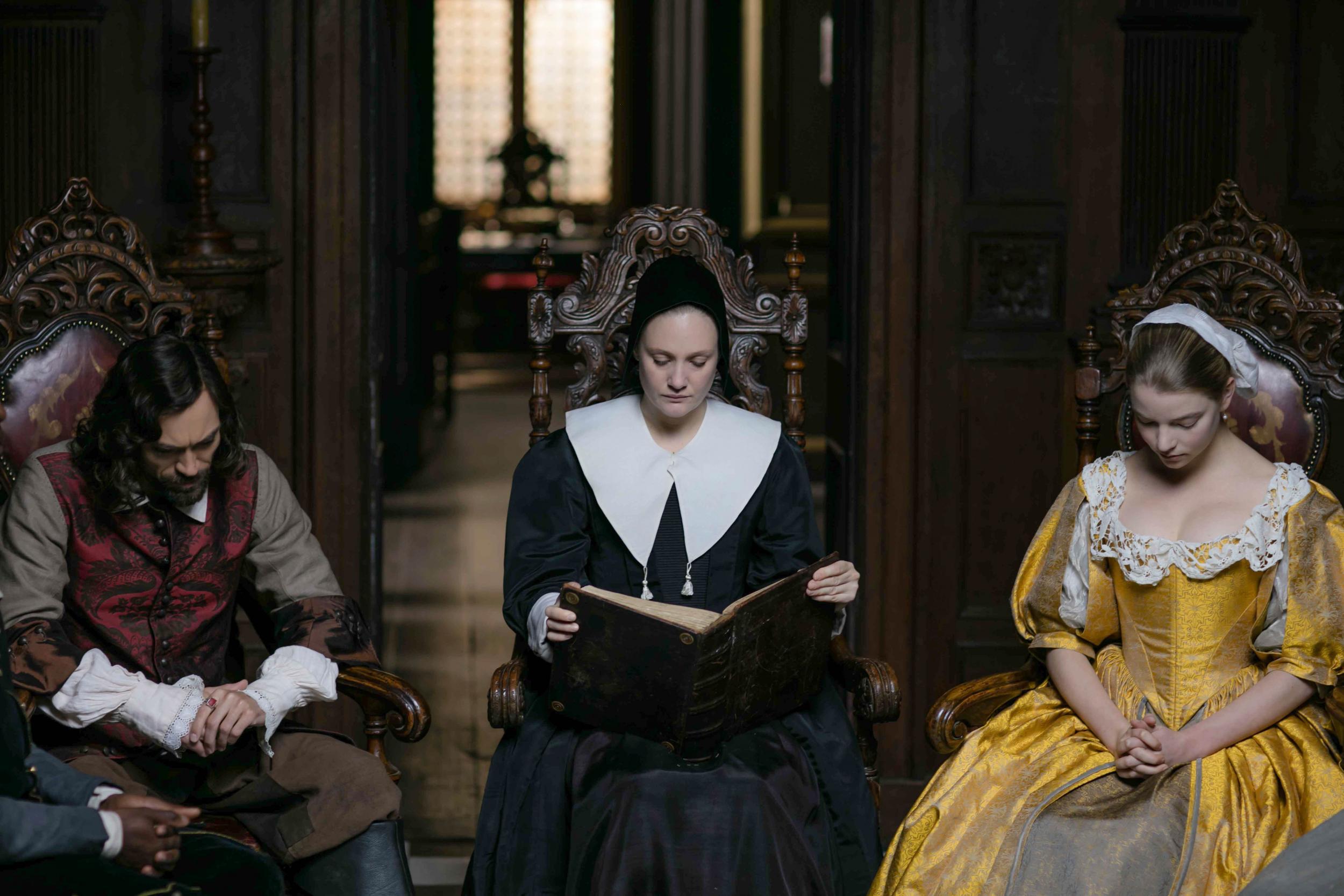Romola Garai interview: 'The industry is a terrible one for parents'
Romola Garai stars in BBC1's new period drama 'The Miniaturist', based on Jessie Burton's debut novel, which became the subject of a publishers' bidding war at the 2013 London Book Fair

Your support helps us to tell the story
From reproductive rights to climate change to Big Tech, The Independent is on the ground when the story is developing. Whether it's investigating the financials of Elon Musk's pro-Trump PAC or producing our latest documentary, 'The A Word', which shines a light on the American women fighting for reproductive rights, we know how important it is to parse out the facts from the messaging.
At such a critical moment in US history, we need reporters on the ground. Your donation allows us to keep sending journalists to speak to both sides of the story.
The Independent is trusted by Americans across the entire political spectrum. And unlike many other quality news outlets, we choose not to lock Americans out of our reporting and analysis with paywalls. We believe quality journalism should be available to everyone, paid for by those who can afford it.
Your support makes all the difference.It’s not difficult to see why the manuscript for Jessie Burton’s debut novel The Miniaturist became the subject of a publishers’ bidding war at the 2013 London Book Fair. Set in 17th-century Amsterdam, and making an imaginary leap into the backstory of a Dutch masterpiece, the similarities with Tracy Chevalier’s global bestseller Girl with the Pearl Earring must have been too striking to ignore.
Chevalier’s novel quickly received the Hollywood treatment, with Scarlett Johansson as Vermeer’s enigmatic servant girl, and made a handsome return at the box office. So what is perhaps surprising about the inevitable screen version of The Miniaturist is that it landed up at the BBC. And what is doubly surprising is that the BBC has gone with a relatively unknown cast. The screen adaptation imagines a fictional story behind the elaborate 1690s dollhouse – now held in the Rijksmuseum in Amsterdam – belonging to a wealthy widow.
The 21-year-old American-born Argentine-British actress Anya Taylor-Joy plays Nella, the genteelly impoverished country girl at the centre of the story, who is married off unseen to a wealthy Amsterdam merchant called Johannes Brandt – played by Alex Hassell, an actor whose work has chiefly been for the Royal Shakespeare Company (his acclaimed Henry V at Stratford in 2015 being compared favourably to Benedict Cumberbatch’s contemporaneous Hamlet). In fact, standing out amidst a cast list that would be more familiar to regular theatre-goers than your average BBC1 audience is one name – that of Romola Garai.

Not that Garai is a household name exactly, although Golden Globe-nominated stints opposite Dominic West in The Hour, and in the title role of Emma in 2009, and films such as Atonement and Suffragette all mean that she is perhaps more ‘bankable’ than her co-stars in The Miniaturist. And she seems to have a face and persona that appears to cry out ‘costume drama’ to casting directors, meaning she has had more than her fair share of period pieces.
“You get sent the jobs you get sent,” she says, as I interrupt her lunch break on the Hertfordshire set of The Miniaturist – the same Jacobean stately home and former boarding school where the St Trinians movies were filmed. “And I have done a disproportionate number of historical pieces.”
Garai plays Marin, Nella’s stern new sister-in-law, a forbidding figure given to creeping up behind the young bride while holding back the secrets of this unusual household (to say more would be to drift into spoiler territory) – a Mrs Danvers figure to Nella’s Rebecca.
“When you first meet her, because the story is told through Nella’s perspective, you meet a woman who seems very cold and intimidating,” says Garai between bites of her sandwich – and neutralising my apologies by saying that the corset she is wearing (“a weird combination of pregnancy bump and corset, they’re sort of cancelling each other out”) is actually killing her appetite.
“Then gradually you get this drip-feed of information about her; you see she’s been helping Johannes run the business and you learn that they were orphaned at a young age. She’s very intellectual, she’s very well read, and she’s not married, which is very unusual at the time. Hopefully, audiences will question what is driving her hostility towards Nella.”
Speaking later on the phone from Los Angeles, where she is currently filming the new M Night Shyamalan film Glass with Bruce Willis and Samuel L Jackson, Anya Taylor-Joy tells me that far from frightened by Romola Garai’s performance, she could hardly contain her giggles.
“I had to really stop myself from grinning ear to ear when I was acting with her because she was delighting in the grossness of her character so much and she was being so awful that it was absolutely delicious,” she says. “I had to keep it in my mind that this is frightening.
“Romola is fantastic – I was so excited to play those scenes with her but also intimidated because she’s just brilliant. She was wonderful to watch on set because she really speaks her mind, which is inspiring.”
Indeed, Garai is well-known for speaking her mind – a proud and vocal feminist who seems to have had an ambiguous relationship with her profession. Born in Hong Kong, the third of four children and her family moving to Singapore before settling in Wiltshire when she was eight, Garai gave up university (she has since gained a first through the Open University) to take the lead in I Capture the Castle, the film of Dodie Smith’s book.
Soon afterwards she was cast in Dirty Dancing 2, the derided sequel to the beloved Patrick Swayze original, an experience she has described as “a cesspit of horrific misogyny” and “my feminist epiphany”, in which a dietician was flown to Puerto Rico to make sure she stayed underweight. “It screwed me up for years,” she told a journalist in 2016. “Not only did it completely change how I felt about my body, but I felt I had failed because I hadn’t fought back.”
In a way she has been fighting back ever since, leading a campaign in 2013 for Tesco to “Lose the Lads Mags” and in the same year presenting a Bafta to Steve Coogan with a joke about the 23 stitches she had in her vagina after giving birth to her first child with actor Sam Hoare. Today, she is most active in campaigning for Parents in Performing Arts against discriminatory working practices in the filmmaking industry.
“The industry is a terrible one for parents,” Garai tells me, hardly the picture of feminism in Marin’s white lace cap and corseted black dress – more like an extra for the The Handmaid’s Tale, in fact. “And it adversely affects women and prevents them from progressing in the industry. It’s why we have this unbelievable discrepancy in female-to-male directors, and I think there are easy things that could be done to change that.
“There’s a culture of incredibly long hours, which is unnecessary – a macho element to filming – and preventing children from access to their fathers. In this day and age, it’s not necessary.”
On a personal level, the passing years are bringing with it greater range. I noted her recent scrubbed-down, naturalistic role as Jenny, the working mother of a teenage psychopath in Channel 4’s Born to Kill. “I have found as I get older, 35 this year, that the roles are starting to diversify in terms of things I get sent, and that has been really exciting because I would like to do more contemporary things,” she says, adding that such diversity might prove temporary.
“Casting is 10 years [too] young – they are unwilling to see older women on the screen so it all gets shoved back. I’ve just played the mother of a teenage boy, where actually it should have been a 45-year-old playing that part. You can have an interesting role sent to you in your late thirties and early forties, and then I think it becomes difficult. And then actresses. Unless you are super-famous, you can have difficult times.”
Garai herself is hoping to direct next year – an independent film whose title is still in flux. “It’s a story about an immigrant in London who is invited to help care for a woman with an elderly invalid mother, and it gets very dark. It has a supernatural element to it – it’s not Ken Loach.”
Meanwhile, she’s been developing a film she’s written called Refrigerator Mother, about a young mother with an autistic child (the title refers to a syndrome invented by Freudians who believed that autism was due to a lack of maternal care). “I’ve done five different drafts for five different directors who have each wanted different things,” she says.
Garai is in search of contemporary drama, in short – and in that category she would include The Miniaturist, despite its setting of the 1680s in Holland. “I think there’s a big difference between doing adaptations of 19th-century novels and contemporary novels set in the past,” she says. “The Crimson Petal and the White [BBC2’s 2011 adaptation of Michael Faber’s 2002 novel set in Victorian London, in which Garai starred] was also a feminist novel.
“For some reason, people find the prism of history easier to attack a lot of those themes. I think maybe it’s because the position of women in this country is in a kind of flux – improved in many ways but still not quite there. Then you get period drama, which are just golden nostalgic views of the past, presenting the class system as this wonderful thing we should bring back, and I try to avoid that.”
Five future period dramas
Britannia (Sky Atlantic)
Set in AD43, a Jez Butterworth-scripted saga of Romans versus the Britons, with David Morrisey and Kelly Reilly leading the cast as heads of the Roman and Celtic factions, and Detectorists creator Mackenzie Crook presumably in his element as a Druid leader
Vanity Fair (ITV)
Olivia Cooke – star of Steven Spielberg’s upcoming Ready Player One – portrays Becky Sharpe in a William Makepeace Thackeray adaptation that also features Doctor Foster’s Suranne Jones, Martin Clunes, Johnny Flynn and Michael Palin.
Gentleman Jack (BBC)
Suranne Jones again, this time playing 1830s landowner Anne Lister in Sally Wainwright’s drama about the pioneering Regency diarist and cross-dressing owner of Shibden Hall in West Yorkshire.
World on Fire (BBC)
Peter ‘The A Word’ Bowker-scripted drama telling seven different “hidden human stories” from both sides of the Second World War. Timed for the 80th anniversary of the war’s outbreak of the war, filming starts across Europe next year and no cast has yet been announced.
Troy: Fall of a City (BBC/Netflix)
An eight-part retelling of the fall of Troy, created by The Night Manager writer David Farr. Bella Dayne (Humans) plays Helen, the face that launched a thousand ships (no pressure there then), while Joseph Mawle is Odysseus.
The Miniaturist begins on Boxing Day at 9pm on BBC1
Join our commenting forum
Join thought-provoking conversations, follow other Independent readers and see their replies
Comments